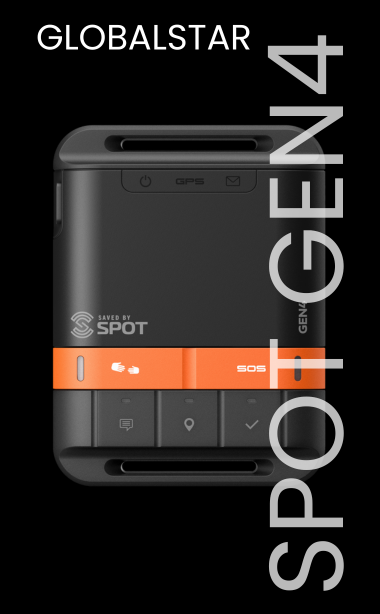You have no items in your shopping cart.
What to Look for when Choosing a Satellite Phone
In the past, we've discussed some of the places where you need to have a satellite phone with you to help ensure your own safety, and we've dispelled some common myths about satellite phones which frequently steer people away from this lifesaving technology. We've also made it easy to rent or buy a satellite phone so you can have one with you when you need it. But which satellite phone should you get?
Here are some things to consider when choosing a satellite phone, to ensure you have the right one for the occasion. The four brands we are comparing are Inmarsat, Iridium, Thuraya, and Globalstar.
Network Coverage
Not all satellite phones have the same coverage area, so you may be able to narrow down your choice pretty significantly by checking this out first. Inmarsat satellite phones work best between 50° North and South latitude due to their satellites being positioned over the equator. The farther from the equator you are, the more your Inmarsat phone's signal will rely on a clear line of sight to the horizon. If you're outside that range or in mountainous terrain, Iridium would be better — and Iridium is also the only satellite network that offers complete global coverage including the poles. Thuraya satellite phones can only be used in Europe, Asia, Australia, and parts of Africa.
Features
Most satellite phones have texting capabilities, albeit with a character limit of around 140. Some have email access, again with limited function to reply. Keep in mind the internet connection of these satellite phones can only handle low-data usage like email. If you need broadband internet access, you should look into Inmarsat BGAN. Safety features are also a major consideration. If you're concerned about having the utmost ability to call for help or be found quickly, look for one-button SOS capability and the ability to leave a GPS breadcrumb trail. Both these features can be found in the latest Iridium satellite phone models.
Durability and Portability
Most satellite phones are at least somewhat weather-resistant, but the degree of water and weather resistance varies. Iridium makes by far the toughest satellite phones, with military-grade weather protection, so if you're likely to encounter extreme conditions keep this in mind.
Cost
Cost is something you should weigh very carefully against the features you need. You'll need to pay for the phone as well as the airtime. With satellite phones, though, pricing and quality rise together pretty consistently. Iridium satellite phones are the most expensive and also the most durable. But you may decide you don't need advanced features and be able to opt for a lower-priced phone.
Another option is to rent your satellite phone instead of buying. This is a great short-term option that will help you get this lifesaving technology in your hands when you need it.
More Information
For more information and help, consult our Buyer's Guide at Outfitter Satellite. Now that you know what to look for, shopping around will be a bit easier. Don't forget about battery life, call quality, and anything else that might matter to you during use.
If you have any questions, please feel free to contact Outfitter Satellite as well. Be safe!
 English
English












